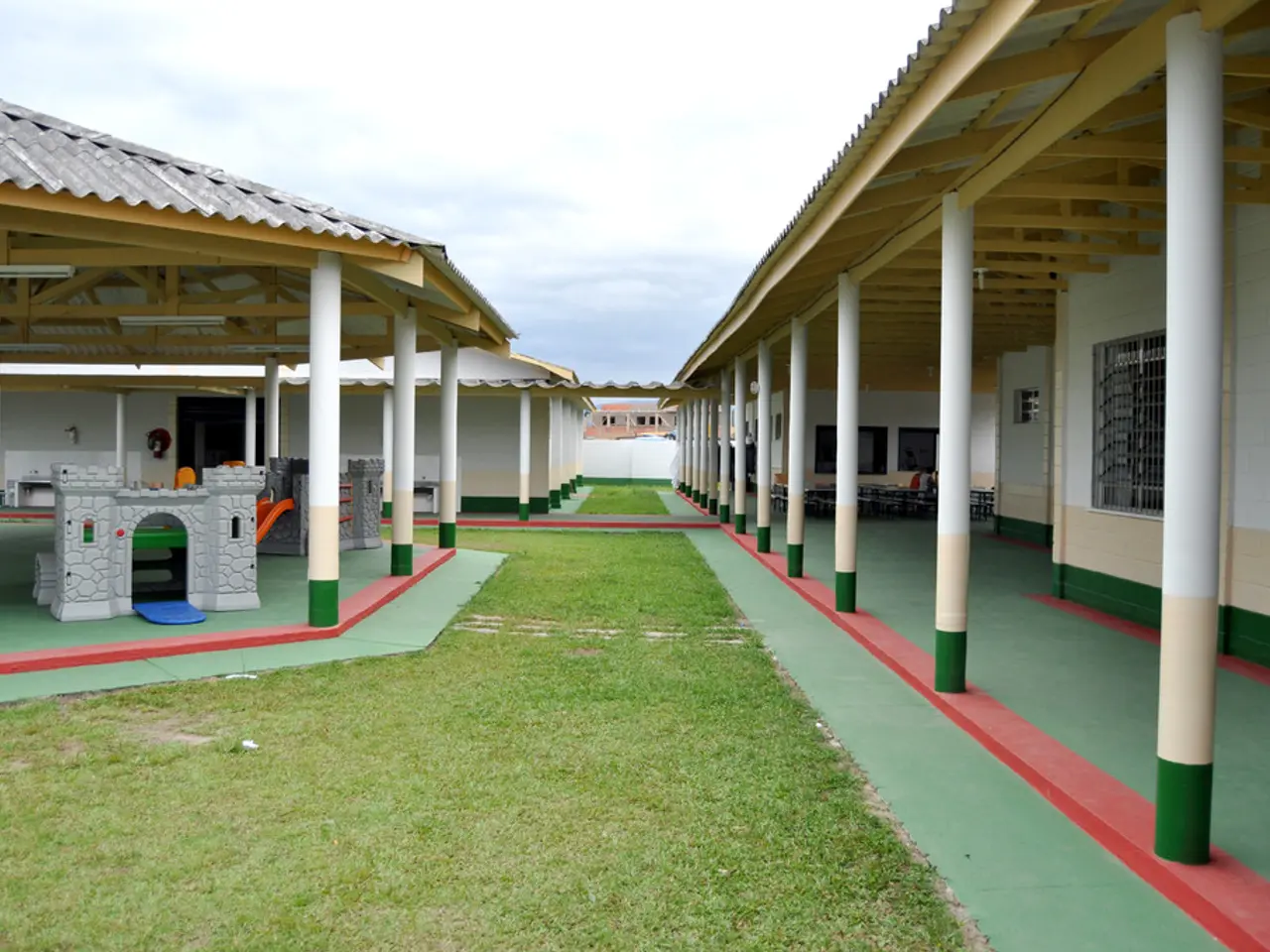Women seeking asylum in Germany continue to grapple with employment disparities
In Germany, a significant gender gap persists in employment rates among refugees, with women facing a stark disadvantage compared to men. By the end of 2019, only about 29% of female refugees were employed, compared to 75% of men among refugees who arrived between 2013 and 2019[1].
This disparity can be attributed to several key factors:
- Language skills: Female refugees often have less proficiency in German, which hinders their ability to access jobs and vocational training. Limited language skills restrict their ability to prepare for the labor market and integrate[1].
- Recognition of foreign qualifications: Many female refugees struggle with Germany's stringent qualification recognition processes. This issue is particularly prevalent among Syrian women trained as teachers or nurses, who are often forced into low-skilled jobs or unemployment, despite having high qualifications[1][2].
- Childcare and caregiving responsibilities: Women disproportionately bear the burden of caregiving and childcare, which limits their availability for work or training programs. These responsibilities also make attending language classes or vocational courses difficult, further slowing integration into the labor market[1][2].
These challenges are compounded by institutional barriers such as prolonged residence permit uncertainty and systemic restrictions on women’s labor market participation[1].
Notable initiatives aiming to address these issues include the Work for Refugees Project, funded by the Berlin Senate (SenASGIVA), and the ReDi School of Digital Integration, which provides training in digital skills and access to a network of tech leaders, students, and alumni[2].
One success story is that of Hala Younis, a former teacher from Syria who arrived on a humanitarian visa in 2022 and found a job as a customer relationship manager with the online fashion platform Zalando, thanks in part to her experiences at ReDi[2].
Organisations like Tent Deutschland, which connect refugees to employment through hiring, training, and mentorship, also play a crucial role in bridging the gap[2].
However, challenges remain, particularly for women with caregiving responsibilities. The difficulties in finding child care have been an obstacle for many of the Ukrainian women who fled with their children to Germany after the start of the Russian invasion in 2022[2].
Despite these challenges, women refugee volunteers, like Donya, who fled from Afghanistan with her 19-year-old son due to death threats after her husband disappeared, serve as role models[2]. Donya is currently working as a care worker for the elderly in Germany, having completed an eight-month training program and German language courses[2].
Critics, like psychologist Afsaneh Afraze, who fled to Germany from Iran in 2014, argue that the one-size-fits-all approach of integration courses in Germany does not cater to the diverse needs and backgrounds of refugees[2].
In conclusion, language proficiency, non-recognition of credentials, and childcare duties interact to disproportionately disadvantage female refugees compared to males in accessing employment opportunities in Germany's labor market[1][2]. Efforts to address these challenges are ongoing, with initiatives like Work for Refugees, ReDi, and Tent Deutschland making a significant impact.
[1] Institute for Employment Research (IAB) (2021). "The Employment Situation of Refugees in Germany: A Comparative Analysis of Refugee and Native-born Employment Rates". [2] Deutsche Welle (2022). "Female Refugees Face Barriers to Integration in Germany".
The government's initiatives like the Work for Refugees Project and ReDi School of Digital Integration are aiming to address the significant disparities in employment rates between male and female refugees in Germany, particularly those related to language skills, recognition of foreign qualifications, and caregiving responsibilities. However, the one-size-fits-all approach of integration courses may not cater to the diverse needs and backgrounds of refugees, as criticized by psychologist Afsaneh Afraze. In education and self-development, organizations such as Tent Deutschland and inspiring figures like Donya from Afghanistan are bridging the gap for refugee women while facing challenges such as finding child care. The news continues to highlight the ongoing political conflict surrounding the access to employment opportunities for female refugees in German society.




